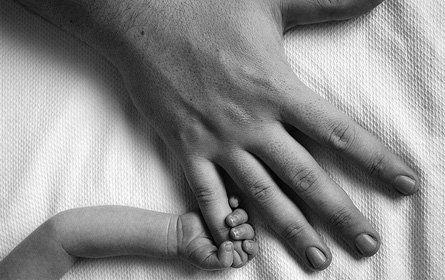<

Like marriage itself, the laws of marriage are in constant flux. But one thing that has not changed is that a child born to a married woman is presumed to be the child of her husband. And it is his name that appears on the birth certificate as the father. Paternity tests and now DNA can rebut and prove that another man is actually the biological father but .without proof to the contrary, there is a presumption of "legitimacy," which has been described as "one of the strongest and persuasive known to the law."
The law was reaffirmed earlier this month in a new and tantalizing scenario by New York State Supreme Court Appellate Division in Manhattan. Nina (formerly Sebastiana) Viola Montepagani, a resident of Albany, commenced a lawsuit against the New York City Department of Health, Office of Vital Records seeking to change her birth certificate. Her goal was "to correct the record," by removing the name of Joseph (Giuseppe) Viola from the document. Viola, who was 60 when Montepagani was born, raised her and was indeed married to her mother, Anna Aliano Viola, but, Montepagani maintained, he was not her biological father. Rather, she claimed that her father was Dr. Sebastiano Raeli, an Italian citizen with whom her mother had had a sexual relationship in Italy, while her new husband was in America awaiting his wife's arrival. The affair took place around the time of the plaintiff's conception, when Anna Aliano Viola was in her late 20s.
A Claim of Illegitimacy
The petitioner. Montepagani, wanted the City of New York to remove from her birth certificate the name Viola that had been there since Nina (then Sebastiana) was born on June 24, 1952 in Williamsburg, Brooklyn and leave the line for father blank. In essence, Justice Michael Stallman said, the petitioner was challenging her own legitimacy by asserting that she is the child of a man other than the one her mother was married to at the time of her birth. She would be a child born out of "wedlock," still an unfavored state in the law, even though about 40 percent of babies born today do not have married parents.
Both Stallman of the state Supreme Court and judges on the appellate bench agreed that the petitioner would have to offer "clear and convincing evidence in order to have her ostensible father's name removed from her birth certificate" and to rebut the presumption of legitimacy.
Montepagani relied on things she said her mother told her and letters her mother wrote to Raeli and his attendance at the baby's baptism at St. Nicholas Church in Brooklyn, as well as photos and inscriptions from him to Nina, referring to her as his daughter, to himself as "daddy" (as translated from Italian) and then, with respect to Nina's children, as grandfather. She also claimed that Raeli had told her that she would inherit his fortune.
Another intriguing detail is that Montepagani's parents named her Sebastiana, the female version of Raeli's first name. Ironically, Montepagani changed this to Nina.
Lack of Evidence
None of this was admissible evidence as it could not be authenticated. The Violas were both dead and could offer no evidence by the time Montepagani began her legal action. Raeli was not a party to the lawsuit.
The petitioner also argued that the dates the Violas were apart at the end of 1941 would have made it impossible for them to have conceived Montepagani because she was born full term, which would have placed her conception at a time her mother remained in Italy. Still the court found that there was no evidence that her birth was full term.
Raeli was over 90 at the time the lawsuit was commenced and had no children -- except, perhaps Nina. But she would have no claim to his great fortune unless she could present to the Italian government a birth certificate with the line for the name of the father left blank. With that she could begin the process of proving her claim in Italy.
Montepagani did not use DNA testing to prove that the already-deceased Viola was not her father. If such testing had excluded a genetic connection, Viola's name could have been removed from the birth certificate. While that would not have proved that Raeli was the father, it would have been enough to at least make her claim in Italy.
Montepagani, though, did not offer or request any DNA evidence. There were no DNA samples sought from Raeli either, and New York courts would not have had jurisdiction to compel his cooperation. In the meantime, Raeli has died, and so has the lawsuit.
Stallman dismissed the Montepagani petition in two decisions, which have now been affirmed on appeal. It is unlikely that any other New York or Italian court will hear the case or upset the presumption of married parenthood.




